Just based upon the moment, I dropped off my loved one; it took several minutes for anyone to acknowledge our presence. Then once this woman did notice us standing there, she spoke very rudely and said, Gruffly, " what do you want?!" After I explained my daughter was chec ...
About Valley Vista Recovery – Vergennes
They have space for 28 women in their facility. The program aims to create a safe environment for women to grow and heal together. During your stay, you’ll attend three hours of individual counseling every week. You have access to up to seven hours of group programming every day. These group sessions vary widely. During some of them, they use alternative therapies like sensory, music, and play therapies. They also have skills-based sessions which focus on developing healthy coping mechanisms and other skills necessary for long term sobriety.
A unique therapy modality they use at Valley Vista Recovery is Narrative therapy, This method helps you to separate yourself from the challenges you’re facing. The idea is that by viewing yourself as separate from your destructive behaviors, you gain an objective viewpoint that empowers you to make important changes. This can be extremely helpful for anyone who tends to judge themselves so harshly they lose hope of ever getting better.
They also use rational emotive behavior therapy, which focuses on replacing irrational thought patterns with realistic ones. This is a type of cognitive behavioral therapy that specifically focuses on the way thoughts impact your actions. Your therapist challenges unhealthy thoughts and helps you rewrite the patterns that lead to unwanted behaviors. This is helpful for anyone who feels like their emotions and reactions are out of control.
Facility Overview
Latest Reviews
Please reach out to us directly at info@valleyvistarecovery.com so we can discuss your experience in more detail and address your concerns personally. Your feedback is invaluable in helping us improve our services.
Rehab Score
Gallery

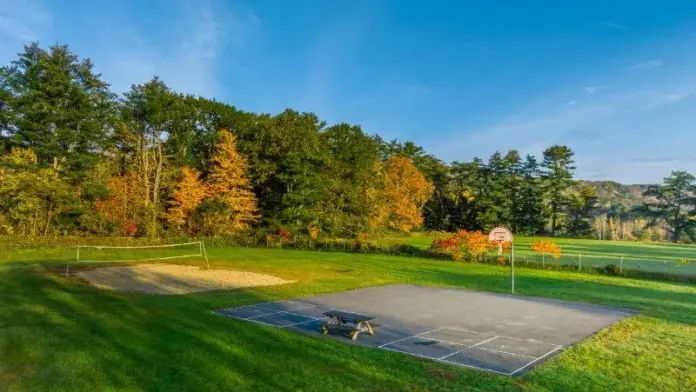
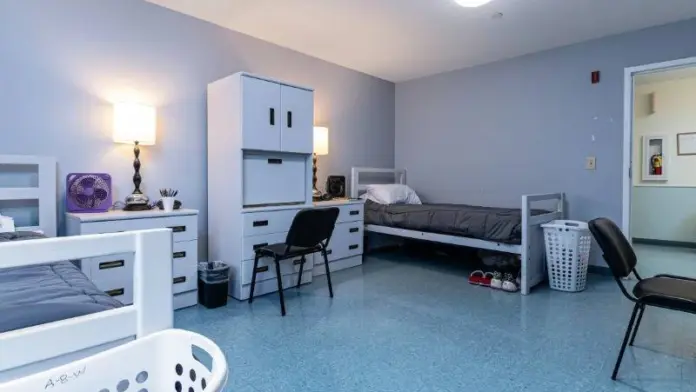
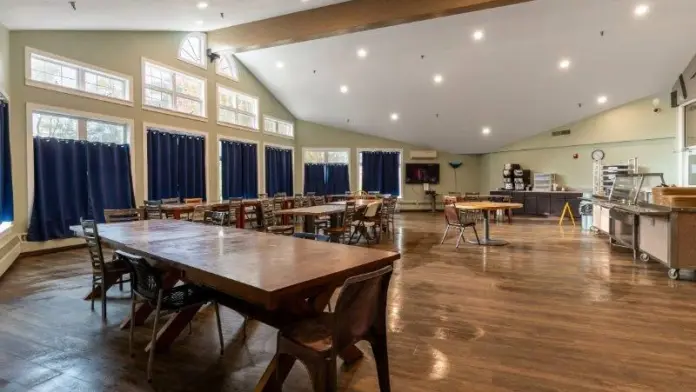
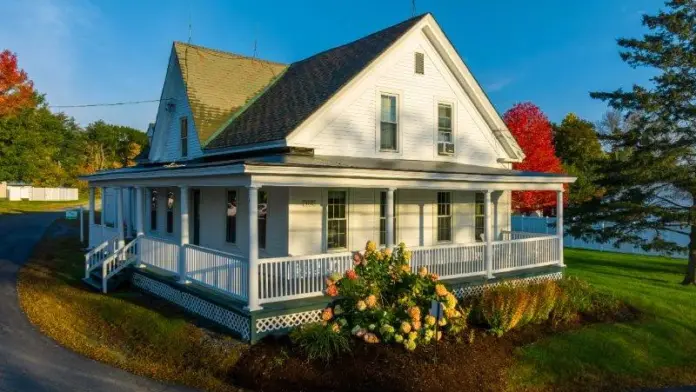
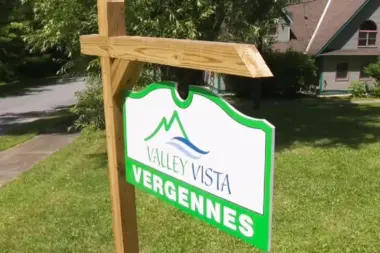

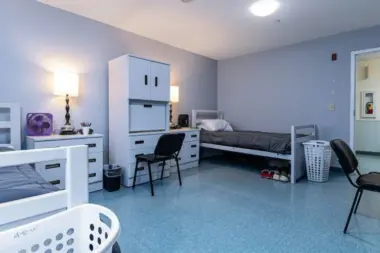


Accepted Insurance
Other Forms of Payment
Private insurance refers to any kind of healthcare coverage that isn't from the state or federal government. This includes individual and family plans offered by an employer or purchased from the Insurance Marketplace. Every plan will have different requirements and out of pocket costs so be sure to get the full details before you start treatment.
Self-pay involves paying for treatment out of your own pocket. You can use savings or credit, get a personal loan, or receive help from family and friends to fund your treatment. If you don't have insurance or your insurance plan doesn't cover a specific program, self-pay can help ensure you still get the care you need.
Financial aid can take many forms. Centers may have grants or scholarships available to clients who meet eligibility requirements. Programs that receive SAMHSA grants may have financial aid available for those who need treatment as well. Grants and scholarships can help you pai for treatment without having to repay.
Medicaid is a state based program that helps lower-income individuals and families pay for healthcare. Medicaid covers addiction treatment so those enrolled can use their coverage to pay for rehab. When a program accepts Medicaid the client often pays very little or nothing out of their own pocket.
Addiction Treatments
Levels of Care
Residential treatment programs are those that offer housing and meals in addition to substance abuse treatment. Rehab facilities that offer residential treatment allow patients to focus solely on recovery, in an environment totally separate from their lives. Some rehab centers specialize in short-term residential treatment (a few days to a week or two), while others solely provide treatment on a long-term basis (several weeks to months). Some offer both, and tailor treatment to the patient's individual requirements.
Rehab aftercare programs approach recovery as a life-long process that requires robust, individualized, and ongoing care. Clients in drug rehab aftercare have typically completed detox and intensive inpatient treatment and are weeks or months into their recovery journey. These programs are designed to promote clients' continued sobriety through a comprehensive portfolio of services aligned with the clients' evolving needs. Peer coaching, career counseling, and relapse prevention services are standard in these continuing care programs.
12-step programs are addiction recovery models based on Alcoholics Anonymous (AA). A number of substance abuse programs (including some drug and alcohol rehab centers) use the 12 steps as a basis for treatment. Beginning steps involve admitting powerlessness over the addiction and creating a spiritual basis for recovery. Middle steps including making direct amends to those who've been hurt by the addiction, and the final step is to assist others in addiction recovery in the same way. 12-Step offshoots including Narcotics Anonymous (NA), Cocaine Anonymous (CA), Dual Recovery Anonymous (DRA), Sex and Love Addicts Anonymous (SLAA) and Gamblers Anonymous (GA).
If you've completed an inpatient treatment program, it can be difficult to re-enter life right away with all the stresses and potential triggers. A sober living home in Vermont can help with this transition. While living there, you are free to work or attend classes and will be held accountable to sobriety and practicing recovery skills. Many residents stay in a men's or women's sober living home for six months or more.
At certain points in the recovery process, it's important to have support available 24/7. 24-hour clinical care offers a safe environment in which to recover from drug or alcohol addiction in peace, knowing medical detox and other treatment will happen with professionals on hand.
Medically supervised detoxification care provides for regular vitals checking at specified intervals by nursing staff; best practice medication assistance, prescribed as necessary, helping to mitigate withdrawal symptoms; and constant patient observation by attending staff members.
Treatments
The goal of treatment for alcoholism is abstinence. Those with poor social support, poor motivation, or psychiatric disorders tend to relapse within a few years of treatment. For these people, success is measured by longer periods of abstinence, reduced use of alcohol, better health, and improved social functioning. Recovery and Maintenance are usually based on 12 step programs and AA meetings.
A person with substance dependence can achieve recovery through drug rehab in Vermont. Professional staff provide a combination of interventions that are designed to help you attain and maintain abstinence from drugs.
Many of those suffering from addiction also suffer from mental or emotional illnesses like schizophrenia, bipolar disorder, depression, or anxiety disorders. Rehab and other substance abuse facilities treating those with a dual diagnosis or co-occurring disorder administer psychiatric treatment to address the person's mental health issue in addition to drug and alcohol rehabilitation.
A combined mental health and substance abuse rehab has the staff and resources available to handle individuals with both mental health and substance abuse issues. It can be challenging to determine where a specific symptom stems from (a mental health issue or an issue related to substance abuse), so mental health and substance abuse professionals are helpful in detangling symptoms and keeping treatment on track.
Opioid rehabs specialize in supporting those recovering from opioid addiction. They treat those suffering from addiction to illegal opioids like heroin, as well as prescription drugs like oxycodone. These centers typically combine both physical as well as mental and emotional support to help stop addiction. Physical support often includes medical detox and subsequent medical support (including medication), and mental support includes in-depth therapy to address the underlying causes of addiction.
Programs
Adult rehab programs include therapies tailored to each client's specific needs, goals, and recovery progress. They are tailored to the specific challenges adult clients may face, including family and work pressures and commitments. From inpatient and residential treatment to various levels of outpatient services, there are many options available. Some facilities also help adults work through co-occurring conditions, like anxiety, that can accompany addiction.
Young adulthood can be an exciting, yet difficult, time of transition. Individuals in their late teens to mid-20s face unique stressors related to school, jobs, families, and social circles, which can lead to a rise in substance use. Rehab centers with dedicated young adult programs will include activities and amenities that cater to this age group, with an emphasis on specialized counseling, peer socialization, and ongoing aftercare.
Recovery is most successful when clients feel accepted and validated by their peers and treatment providers. Facilities that offer LGBTQ-inclusive programming are committed to creating a safe space where everyone can grow and recover without fear of judgment or discrimination. They will have dedicated policies in place to create a safe and supportive environment that fosters free expression.
Clinical Services
Cognitive Behavioral Therapy (CBT) is a therapy modality that focuses on the relationship between one's thoughts, feelings, and behaviors. It is used to establish and allow for healthy responses to thoughts and feelings (instead of unhealthy responses, like using drugs or alcohol). CBT has been proven effective for recovering addicts of all kinds, and is used to strengthen a patient's own self-awareness and ability to self-regulate. CBT allows individuals to monitor their own emotional state, become more adept at communicating with others, and manage stress without needing to engage in substance abuse.
Dialectical Behavior Therapy (DBT) is a modified form of Cognitive Behavioral Therapy (CBT), a treatment designed to help people understand and ultimately affect the relationship between their thoughts, feelings, and behaviors. DBT is often used for individuals who struggle with self-harm behaviors, such as self-mutilation (cutting) and suicidal thoughts, urges, or attempts. It has been proven clinically effective for those who struggle with out-of-control emotions and mental health illnesses like Borderline Personality Disorder.
Group therapy is any therapeutic work that happens in a group (not one-on-one). There are a number of different group therapy modalities, including support groups, experiential therapy, psycho-education, and more. Group therapy involves treatment as well as processing interaction between group members.
In individual therapy, a patient meets one-on-one with a trained psychologist or counselor. Therapy is a pivotal part of effective substance abuse treatment, as it often covers root causes of addiction, including challenges faced by the patient in their social, family, and work/school life.
The core principles of motivational interviewing are acceptance, compassion, partnership, and evocation. This collaborative process offers a nonjudgmental environment where the therapist expresses sympathy, highlights the client's strengths, and empowers them to explore necessary change.
Trauma therapy addresses traumatic incidents from a client's past that are likely affecting their present-day experience. Trauma is often one of the primary triggers and potential causes of addiction, and can stem from child sexual abuse, domestic violence, having a parent with a mental illness, losing one or both parents at a young age, teenage or adult sexual assault, or any number of other factors. The purpose of trauma therapy is to allow a patient to process trauma and move through and past it, with the help of trained and compassionate mental health professionals.
Research clearly demonstrates that recovery is far more successful and sustainable when loved ones like family members participate in rehab and substance abuse treatment. Genetic factors may be at play when it comes to drug and alcohol addiction, as well as mental health issues. Family dynamics often play a critical role in addiction triggers, and if properly educated, family members can be a strong source of support when it comes to rehabilitation.
During life skills training in Vermont, you'll learn goal setting and develop the skills you need to reach those goals. The social and mental skills you develop provide a solid framework to support long term recovery.
Recreational therapy allows you to find joy and purpose within healthy activities that are typically not a part of your life while you are addicted. These can include group games, arts and crafts, and fitness programs that help promote relaxation, give you an outlet for your emotions, and reduce stress levels. These factors are essential for long term recovery.
During experiential therapy in Vermont, you'll explore feelings of anger, hurt, or trauma. This happens through physical experiences rather than talk therapy. The goal is to help you work through past experiences and process your pain with the aid of the current experience, such as art, music, fitness, or equine therapy.
Amenities
-
Residential Setting
-
Private Rooms
-
Hiking
-
Walking Trails
Staff & Accreditations
Staff

Jack Duffy
CEO

Rick Distefano
COO

Kevin Hamel, BSN, RN, CPXP
VP Medical & Clinical Services
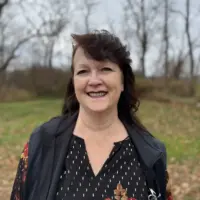
Cherylanne Linares, MSN, PMH-BC RN
Director of Nursing
Accreditations

The Substance Abuse and Mental Health Services Administration (SAMHSA) is a branch of the U.S. Department of Health and Human Services. Established in 1992 by congress, SAMHSA's mission is to reduce the impact of substance abuse and mental illness on American's communities.
SAMHSA Listed: Yes

The Commission on Accreditation of Rehabilitation Facilities (CARF) is a non-profit organization that specifically accredits rehab organizations. Founded in 1966, CARF's, mission is to help service providers like rehab facilities maintain high standards of care.
CARF Accreditation: Yes
Contact Information
1 Alden Place
Vergennes, VT 05491





